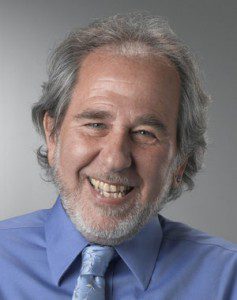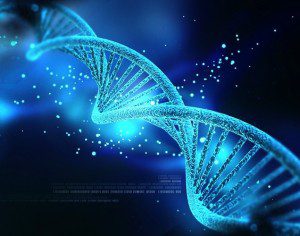By Bruce H. Lipton Ph.D
Guest Writer for Wake Up World
The common idea that DNA determines so much of who we are — not only our eye or hair color, for example, but also our addictions, disorders, or susceptibility to cancer — is a misconception. This concept “says you are less powerful than your genes.”
The problem with that belief system is that it extends to another level … You find yourself to be more or less a victim of your heredity. You become irresponsible. You say, “I can’t do anything about it, so why try?”
In reality, a person’s perception, not genetic programming, is what spurs all action in the body. It is actually our beliefs that select our genes, that select our behavior.
The human body is comprised of 50 to 65 trillion cells. Cell functions independent of DNA and its perceptions of environmental stimuli affect DNA. This also applies the same principles to the human body as a whole, showing the power our perceptions, our beliefs, have over DNA.
[pro_ad_display_adzone id=”110028″]
5-Step Explanation
1.The cell is like a human body and it functions without DNA
The cell is like a human body. It is capable of respiration, digestion, reproduction, and other life functions. The nucleus, which contains the genes, has traditionally been viewed as the control center — the brain of the cell.
Yet, when the nucleus is removed, the cell continues with all of its life functions and it can still recognize toxins and nutrients. It appears the nucleus — and the DNA it contains — does not control the cell.
Scientists assumed some 50 years ago that genes control biology. It just seemed so correct, we bought the story. We don’t have the right assumptions.
2. DNA is controlled by the environment
Proteins carry out the functions in cells and they are building blocks of life. It has long been thought that DNA controls or determines the actions of proteins.
Here I propose a different model. Environmental stimuli that come into contact with the cell membrane are perceived by receptor proteins in the membrane. This sets off a chain reaction of proteins passing on what could be described as messages to other proteins, motivating action in the cell.
DNA is coated in a protective sleeve of protein. The environmental signals act on that protein, causing it to open up and to select certain genes for use — genes specifically needed to react to the current environment.
Basically, DNA is not the beginning of the chain reaction. Instead, the cell membrane’s perception of the environment is the first step.
If there are no perceptions, the DNA is inactive.
Genes can’t turn themselves on or off … they can’t control themselves. If a cell is cut off from any environmental stimuli, it doesn’t do anything. Life is due to how the cell responds to the environment.
3. Perception of the environment is not necessarily the reality of the environment
In a 1988 study done by John Cairns, published in the journal Nature titled “The Origin of Mutants,” he showed that mutations in DNA were not random, but happened in a predetermined way in response to environmental stresses.
In every one of your cells, you have genes whose function it is to rewrite and adapt genes as necessary. In a chart illustrating Cairns findings in the journal, environmental signals were shown to be separate from the organism’s perception of environmental signals.
A being’s perception of the environment acts as a filter between the reality of the environment and the biological reaction to it.
Perception rewrites genes!
4. Human beliefs, choosing to perceive a positive or negative environment
Just as a cell has receptor proteins to perceive the environment outside the cell membrane, humans have the five senses.
These are what help a person determine which genes need to be activated for a given situation.
The genes are like programs on a computer disk. These programs can be divided into two classes: the first relates to growth, or reproduction; the second relates to protection.
When a cell encounters nutrients, the growth genes are activated and used. When a cell encounters toxins, the protection genes are activated and used.
When a human being encounters love, the growth genes are activated. When a human being encounters fear, the protection genes are activated.
A person may perceive a negative environment where there is actually a supportive or positive environment. When this negative perception activates the protection genes, the body’s response is the programmed “fight or flight.”
5. ‘Fight or Flight’
Blood flow is directed away from the vital organs to the limbs, which are used for fighting and running. The immune system becomes of lesser importance. If you picture the responses we once needed for running from a lion, for example, the legs would have been infinitely more important in that immediate situation than the immune system. Thus, the body favors the legs and neglects the immune system.
So, when a person perceives a negative environment, the body tends to neglect the immune system and vital organs. Stress also makes us less intelligent, less clear-minded. The part of the brain related to reflexes is given more prominence in fight or flight mode than the part related to memory and other mental functions.
When a person perceives a loving environment, the body activates growth genes and nurtures the body.
For example, in Eastern European orphanages where children are given lots of nutrients, but little love these types of institutions have found to have stunted development in terms of height, learning, and other areas. There is also a high incidence of autism. Autism in this case is a symptom of protection genes being activated, like walls being put up.
Beliefs act as a filter between the real environment and your biology. Thus, people have the power to change their biology. It is important to keep a clear perception because otherwise you won’t develop the right things biologically for the real environment around you.
You are not victims of genes. What beliefs are you choosing for your genes to be expressed?
Please note: The above is a simplistic summary of “The Biology of Belief”. For more details, you may visit www.brucelipton.com
Also by Dr. Lipton:
About the author:
 Bruce H. Lipton, Ph.D is an internationally recognized leader in bridging science and spirit. Stem cell biologist, bestselling author of The Biology of Belief and recipient of the 2009 Goi Peace Award, he has been a guest speaker on hundreds of TV and radio shows, as well as keynote presenter for national and international conferences.
Bruce H. Lipton, Ph.D is an internationally recognized leader in bridging science and spirit. Stem cell biologist, bestselling author of The Biology of Belief and recipient of the 2009 Goi Peace Award, he has been a guest speaker on hundreds of TV and radio shows, as well as keynote presenter for national and international conferences.
Dr. Lipton has taken his award-winning medical school lectures to the public and is currently a sought after keynote speaker and workshop presenter. He lectures to conventional and complementary medical professionals and lay audiences about leading-edge science and how it dovetails with mind-body medicine and spiritual principles. His books include:
- 2005 The Biology of Belief – Unleashing the Power of Consciousness, Matter & Miracles
- 2006 The Wisdom of Your Cells – How Your Beliefs Control Your Biology
- 2009 Spontaneous Evolution: Our Positive Future and a Way to Get There from Here
- 2013 The Honeymoon Effect: The Science of Creating Heaven on Earth
Dr. Lipton’s books are all available here.
To learn more, go to BruceLipton.com… Facebook.com/BruceHLiptonPhD… Twitter.com/BiologyOfBelief… and BruceLipton.com/VideosPodCasts.
[pro_ad_display_adzone id=”110027″]







